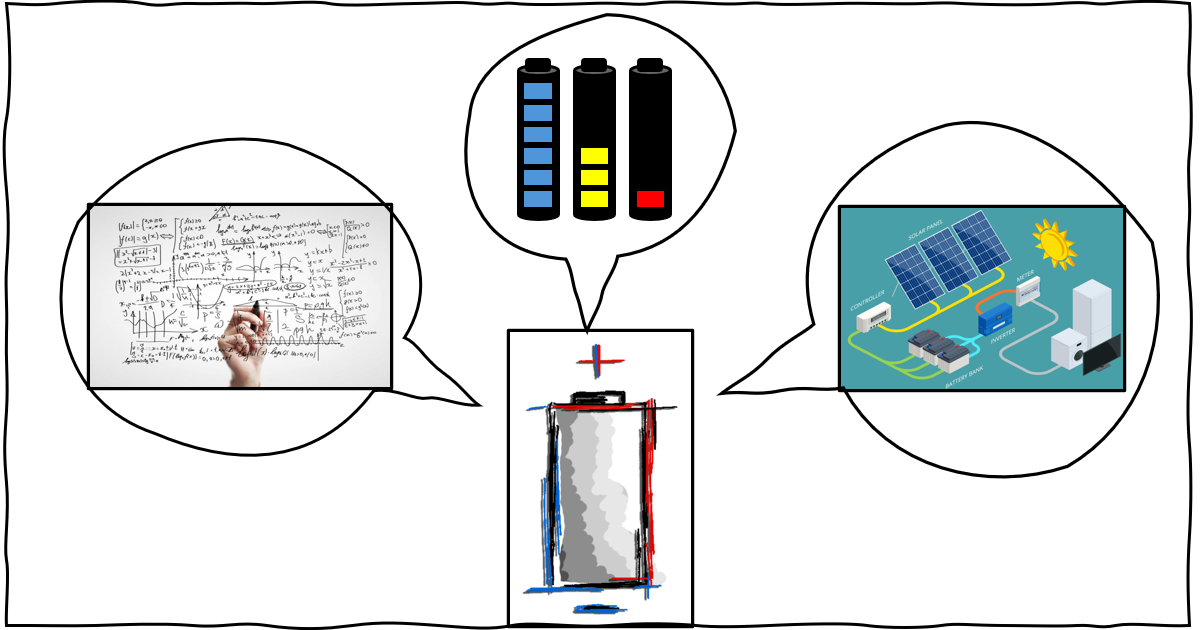Innovations in Battery Management: Advanced Modeling, Control and Diagnostic Algorithms for Batteries and Hybrid Energy Storage Systems
A special issue of Batteries (ISSN 2313-0105). This special issue belongs to the section "Battery Modelling, Simulation, Management and Application".
Deadline for manuscript submissions: 26 March 2026 | Viewed by 530

Special Issue Editors
Interests: study and implementation of new optimization algorithms and modulation techniques for multi-level and multi-source power converters in the fields of renewable energy and e-mobility; new powertrain architectures and control techniques for electric vehicles; development of diagnostic and control algorithms for managing high-voltage battery packs or hybrid energy storage systems
Special Issues, Collections and Topics in MDPI journals
Interests: development of models and techniques for predictive diagnosis of batteries; design, implementation and characterization of positioning systems for biomedical and industrial applications; application of eddy current techniques for the estimation of geometric and physical properties of conductive materials
Special Issues, Collections and Topics in MDPI journals
Interests: development, prototyping, and control of battery management systems as well as passive and active equalization techniques for Li-ion packs; modeling, optimization, development and control of electrochemical energy storage systems and power converters needed for their integration in mobility and stationary applications
Special Issue Information
Dear Colleagues,
The rapid development of battery technologies is crucial for advancing renewable energy, electric vehicles, and portable electronics. This Special Issue invites contributions addressing critical challenges in battery modeling at both the cell and pack levels, controlling high-voltage battery packs or hybrid energy storage systems (HESSs) for e-mobility and stationary applications, as well as developing diagnostic algorithms oriented to performance maximization and safety. We encourage submissions that propose innovative approaches, including artificial intelligence (AI), advanced sensors and behavioral modeling, to improve battery lifecycle management and sustainability.
Topics of interest include models used for SoX estimation and the prediction of remaining useful life (RUL), optimized characterization procedures for model calibration, thermal management strategies for improved efficiency, and solutions for recycling and second-life applications. Emphasis will also be placed on the integration of batteries in HESSs, real-time diagnostics using innovative sensors, and scalable manufacturing techniques.
Expected submission topics include, but are not limited to, the following:
- Modeling of battery behavior at cell and pack levels;
- Optimized characterization procedures for battery modeling;
- Control strategies for high-voltage battery packs or HESS;
- Integration of batteries within HESS;
- Diagnostic algorithms for performance maximization and safety;
- Advanced SoX estimation and RUL prediction techniques;
- Thermal management solutions for battery systems;
- Advanced sensors for real-time battery diagnostics;
- AI-driven battery management systems;
- Battery aging mechanisms and mitigation strategies;
- Innovations in battery recycling and second-life applications;
- Sustainable manufacturing and material innovations;
- Policy and economic perspectives on battery circularity.
Dr. Mauro Di Monaco
Dr. Filippo Milano
Dr. Francesco Porpora
Guest Editors
Manuscript Submission Information
Manuscripts should be submitted online at www.mdpi.com by registering and logging in to this website. Once you are registered, click here to go to the submission form. Manuscripts can be submitted until the deadline. All submissions that pass pre-check are peer-reviewed. Accepted papers will be published continuously in the journal (as soon as accepted) and will be listed together on the special issue website. Research articles, review articles as well as short communications are invited. For planned papers, a title and short abstract (about 250 words) can be sent to the Editorial Office for assessment.
Submitted manuscripts should not have been published previously, nor be under consideration for publication elsewhere (except conference proceedings papers). All manuscripts are thoroughly refereed through a single-blind peer-review process. A guide for authors and other relevant information for submission of manuscripts is available on the Instructions for Authors page. Batteries is an international peer-reviewed open access monthly journal published by MDPI.
Please visit the Instructions for Authors page before submitting a manuscript. The Article Processing Charge (APC) for publication in this open access journal is 2700 CHF (Swiss Francs). Submitted papers should be well formatted and use good English. Authors may use MDPI's English editing service prior to publication or during author revisions.
Keywords
- battery modelling
- characterization procedures
- control and optimization algorithms
- battery aging mechanisms
- state of health (SoH) estimation
- remaining useful life (RUL) prediction
- battery recycling
- second-life battery applications
- hybrid energy storage systems (HESSs)
- artificial intelligence in batteries
- advanced battery diagnostics
- thermal management
- advanced battery sensors
- sustainable battery technologies
- battery performance optimization
Benefits of Publishing in a Special Issue
- Ease of navigation: Grouping papers by topic helps scholars navigate broad scope journals more efficiently.
- Greater discoverability: Special Issues support the reach and impact of scientific research. Articles in Special Issues are more discoverable and cited more frequently.
- Expansion of research network: Special Issues facilitate connections among authors, fostering scientific collaborations.
- External promotion: Articles in Special Issues are often promoted through the journal's social media, increasing their visibility.
- Reprint: MDPI Books provides the opportunity to republish successful Special Issues in book format, both online and in print.
Further information on MDPI's Special Issue policies can be found here.







